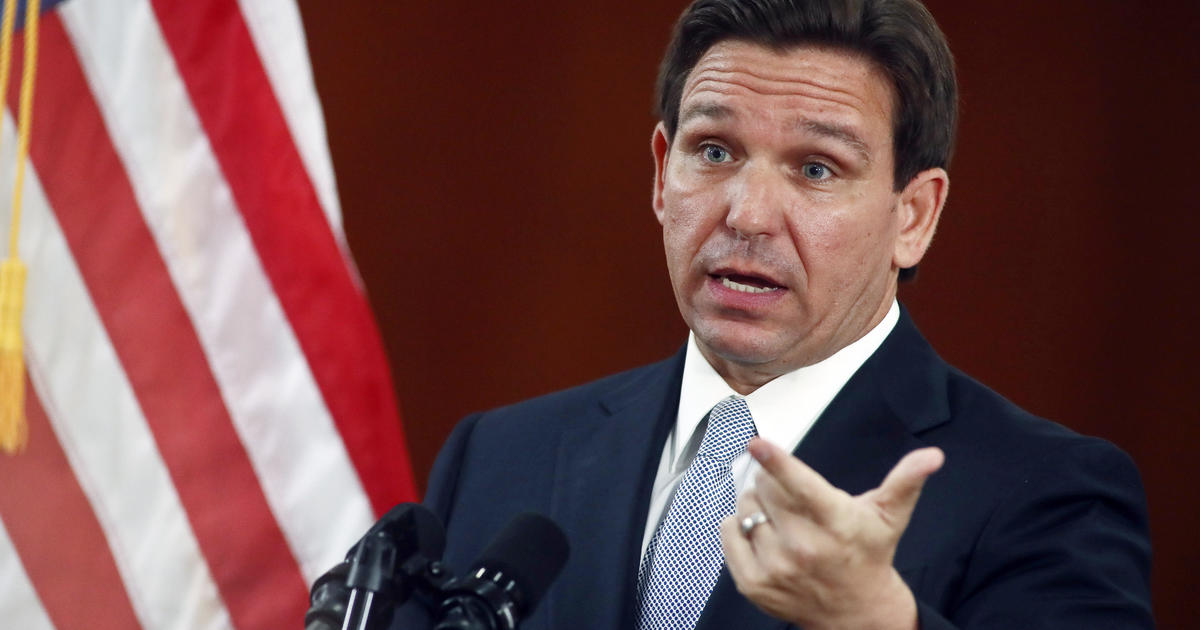Rehearing Sought In Major Death Penalty Case In Florida
TALLAHASSEE (CBSMiami/NSF) - Pointing to "evolving standards of decency," attorneys for a Death Row inmate have asked the Florida Supreme Court to reconsider a major ruling that said unanimous jury recommendations are not necessary before death sentences can be imposed.
But Attorney General Ashley Moody's office Thursday urged the court to reject the request for a rehearing on the issue.
The filings came after the Supreme Court on Jan. 23 said it "got it wrong" in 2016 when it required changes such as unanimous jury recommendations on death sentences.
The 2016 ruling came as judges, lawyers and state leaders tried to move forward after the U.S. Supreme Court had found Florida's death-penalty system unconstitutional.
In reversing course last month, the Supreme Court reinstated a death sentence for Mark Anthony Poole, who was convicted in Polk County in the 2001 first-degree murder of Noah Scott, the attempted murder and sexual battery of Loretta White, armed burglary and armed robbery.
A jury in 2011 recommended by a vote of 11-1 that Poole should be sentenced to death --- a sentence that a judge imposed.
Based on the Florida Supreme Court's 2016 decision, Poole's death sentence was later vacated because of the lack of a unanimous jury recommendation.
In the Feb. 7 motion for a rehearing at the Supreme Court, Poole's attorneys raised a series of issues, including that justices did not properly take into account "evolving standards of decency" when they reversed course on the need for unanimous jury recommendations on death sentences.
"Current standards of decency show that jury unanimity is required to impose a sentence of death. This (Florida Supreme) Court adopted that conclusion more than three years ago. … Since then, the notion that unanimity can be dispensed with when the prospect of death looms has only become more unpalatable: Today, only 'Alabama … still permits a judge to impose the death penalty based upon a jury's non-unanimous recommendation for death,'" the motion said, partially quoting a report by the Death Penalty Information Center.
But in a response filed Thursday, Moody's office disputed that unanimous jury recommendations are required under the U.S. Constitution's Eighth Amendment, which bars cruel and unusual punishment.
"The (U.S.) Supreme Court has never held that the Eighth Amendment requires the jury's final recommendation in a capital case to be unanimous," the attorney general's response said. "
Florida was not required to adopt a unanimous jury recommendation requirement simply because a majority of other states have done so."
The decision last month by the Florida Supreme Court came after a long, complicated series of issues that stemmed from a January 2016 ruling by the U.S. Supreme Court in a case dubbed Hurst v. Florida.
That ruling found the state's death-penalty system was unconstitutional because it gave too much authority to judges, instead of juries, in imposing death sentences.
The Florida Supreme Court in October 2016, in the similarly named case of Hurst v. State, interpreted and applied the U.S. Supreme Court ruling. In addition to requiring unanimous jury recommendations, it also dealt with a critical issue of jurors finding what are known as "aggravating factors" that can justify death sentences.
In 2017, the Legislature passed a law that required unanimous jury recommendations as it complied with the state Supreme Court ruling. That law remains in place, and the Legislature has not moved to change it during the current legislative session.
(©2020 CBS Local Media. All rights reserved. This material may not be published, broadcast, rewritten, or redistributed. The News Service of Florida's Jim Saunders contributed to this report.)



